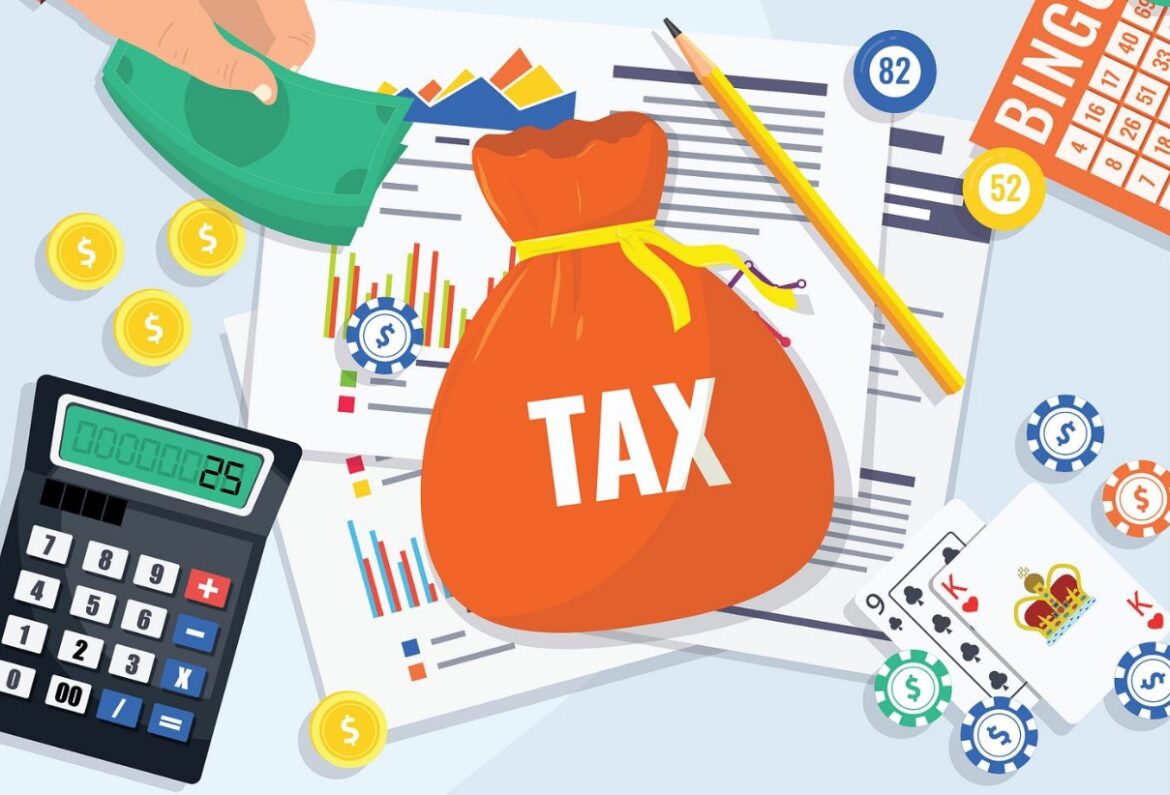In the dynamic world of online gambling, understanding the tax implications of your winnings is crucial. This article sheds light on 12 key aspects every gambler should be aware of when it comes to taxes on online casino winnings.
We aim to provide clear, actionable insights that will help you navigate the complex landscape of gambling taxation.
1. Taxable Income
Any cash or prize that you win from your gambling activities is subject to taxation. This doesn’t just mean the large jackpots; it includes all triumphs, regardless of size. The laws require you to report all your triumphs as income on your return.
You must report your winnings on your return, typically on the “Other Income” line. The IRS requires a detailed record of your victories and losses to substantiate your income and deductions.
2. Reporting Thresholds

Source: casino.org
You’ll receive a W-2G form if your winnings meet or exceed the reporting thresholds, which vary by type of gambling. For example, the threshold for slot machine winnings is $1,200 or more.
This form provides a record of your victories for both you and the IRS. Even if you don’t receive a W-2G, it’s your responsibility to report all your triumphs.
Keeping detailed records of your gambling activities can help you during the season, especially if you need to itemize your deductions.
3. Deducting Losses
You can only deduct losses up to the amount of your total triumphs. This means you can’t claim a net loss on your return. To deduct losses, you must itemize your deductions, which might not always be beneficial, depending on your overall situation.
To deduct your losses, you must keep an accurate record of your gambling activities, including dates, types of gambling, amounts won and lost, and the names and locations of the gambling establishments.
4. State Tax Considerations
Some states have gambling winnings while others do not. The rate at which triumphs are taxed can also vary greatly. It’s important to familiarize yourself with the laws of your state and any other states where you may have won money.
If you win money in a state other than your residence, you may need to file a return in that state as well. This could mean dealing with multiple state filings, each with its own rules and regulations.
5. Professional Gamblers vs. Casual Gamblers
Professional gamblers are considered self-employed individuals. To be classified as a professional, you must prove that your primary intention is to make a profit from your gambling activities.
This status allows you to deduct gambling losses as business expenses, but it also subjects you to self-employment taxes.
Casual gamblers report victories as other income and losses as itemized deductions. Unlike professionals, they cannot deduct gambling expenses beyond their victories and are not subject to self-employment tariffs on their gambling income.
6. Taxes on Non-Cash Prizes

Source: m.youtube.com
If you win a non-cash prize, such as a car or a trip, you must report the fair market value of the prize as income. The fair market value is the price that the item would sell for on the open market.
In some cases, the entity awarding the prize, including no deposit bonuses, will withhold taxes at the time of the award.
This applies not only to tangible prizes but also to monetary awards that don’t require an initial investment like no deposit bonuses often found in online casinos.
The amount withheld will be reported to both you and the IRS, allowing you to credit it against your total liability when you file your return. This ensures that even winnings from no deposit bonuses are accounted for in your obligations, maintaining transparency and compliance with tariff regulations.
7. Foreign Gambling Winnings
U.S. citizens and residents must report all gambling winnings from foreign sources on their return, just as they would for triumphs from domestic sources.
This includes winnings from online casinos based outside the U.S.
The U.S. has treaties with some countries that may affect how your winnings are taxed. In some cases, foreign surcharges paid on your victories may be creditable against your U.S. liability.
8. Gambling With Cryptocurrency
For tax purposes, the IRS treats cryptocurrency as property, not currency. This means that gambling with cryptocurrency can trigger a capital gains surcharge in addition to regular gambling tariffs if the value of the cryptocurrency has increased since you acquired it.
You must report your gambling winnings in cryptocurrency based on the fair market value of the cryptocurrency at the time of the win. Keeping detailed records of your transactions is crucial for accurate reporting.
9. Withholding on Gambling Winnings
The IRS mandates withholding at a rate of 24% on certain gambling victories. This is intended as a prepayment of your tax liability on those triumphs.
The amount withheld will be reported to you and the IRS. When you file your tax return, you can credit the withheld amount against your total tax liability. If too much was withheld, you might be eligible for a refund.
10. Impact of the Tax Cuts and Jobs Act

Source: cpajournal.com
The TCJA modified the standard deduction and itemized deduction rules, which can affect how gamblers deduct their losses.
The increased standard deduction may mean fewer gamblers will itemize, potentially limiting the ability to deduct gambling losses.
The TCJA did not change the record-keeping requirements for gambling winnings and losses. However, the increased emphasis on documentation by the IRS means gamblers need to be meticulous in maintaining records of their gambling activities.
11. Penalties for Not Reporting Winnings
If you fail to report gambling victories, you may face an audit, penalties, and interest on the unpaid tax. The IRS can audit your returns up to three years after filing, longer if they suspect fraud.
The best way to avoid penalties is to report all your gambling winnings accurately and keep detailed records of your wins and losses. This documentation can be invaluable if the IRS questions your tax return.
12. Seeking Professional Advice
A tax professional can provide personalized advice based on your specific situation, help you navigate the complexities of tax laws, and ensure you comply with all reporting and payment requirements.
Conclusion

Source: tgccpa.com
In conclusion, understanding the tax implications of online casino winnings is essential for every gambler.
By keeping informed about the rules, maintaining accurate records, and possibly consulting with a tax professional, you can ensure compliance with tax laws and avoid unnecessary penalties.
Remember, gambling should be fun, but it’s also important to be aware of the tax responsibilities that come with your winnings.

